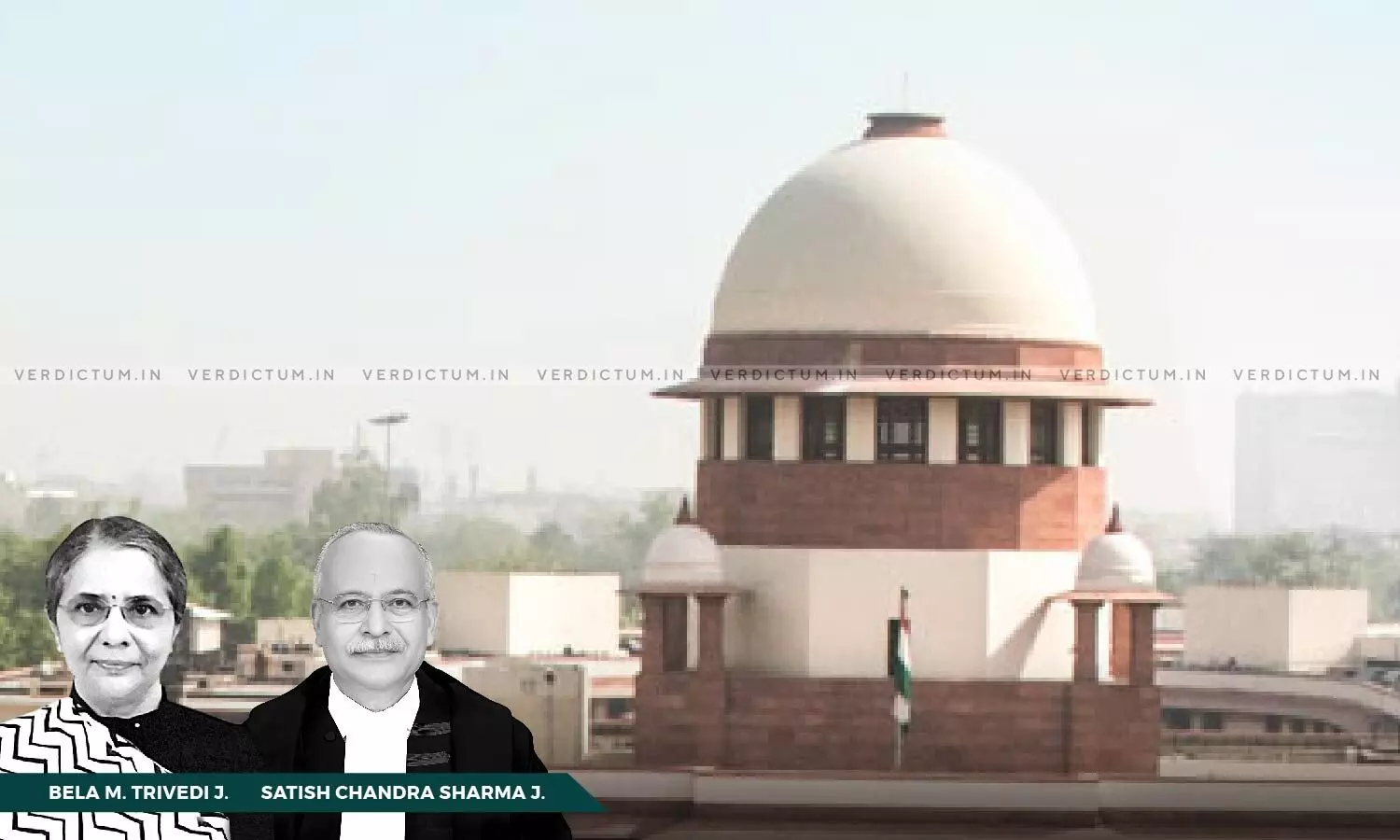
PMLA | Written Grounds Of Arrest To Be Furnished Within 24 Hours Of Arrest; 'Pankaj Bansal' Judgment Not Retrospective: Supreme Court
 |
|The Supreme Court held that written grounds of arrest has be furnished to a person arrested in a money laundering case within 24 hours of his arrest.
The court also clarified that the judgment in Pankaj Bansal vs Union of India has no retrospective application. Non furnishing of grounds of arrest in writing till the date of pronouncement of judgment in Pankaj Bansal case could neither be held to be illegal nor the action of the concerned officer in not furnishing the same in writing could be faulted with, it said.
The Court was deciding an appeal against the judgment of the Delhi High Court by which it dismissed the petition seeking declaration that the arrest by the Directorate of Enforcement (ED) was illegal and violative of fundamental rights under Articles 14, 20, and 21 of the Constitution.
The two-Judge Bench of Justice Bela M. Trivedi and Justice Satish Chandra Sharma observed, “the person arrested, if he is informed or made aware orally about the grounds of arrest at the time of his arrest and is furnished a written communication about the grounds of arrest as soon as may be i.e as early as possible and within reasonably convenient and requisite time of twenty-four hours of his arrest, that would be sufficient compliance of not only Section 19 of PMLA but also of Article 22(1) of the Constitution of India.”
Senior Advocate Abhishek Manu Singhvi appeared on behalf of the appellant while ASG S.V. Raju appeared on behalf of the respondent.
In this case, the appellant was the founder of M/s Supertech Limited, a real estate company which had undertaken various projects in Delhi NCR and other places in Uttar Pradesh. Due to various reasons, 26 FIRs were registered against the founder in various jurisdictions and he was then summoned under Section 50 of PMLA. During March 2022, some insolvency proceedings were filed against his company before the NCLT (National Company Law Tribunal) which passed some interlocutory orders. The founder also took up the matter before the NCLAT (National Company Law Appellate Tribunal) with settlement proposal but during that time, ED passed a provisional attachment order and filed an original complaint before the Adjudicating Authority.
As per the founder, before he could reply to the show cause notice issued by the Adjudicating Authority, he was arrested by the ED without serving to him the ground of arrest. The Special Court remanded him to the ED custody and then he was sent to judicial custody. He filed a bail application before the Special Court but the same was dismissed. Thereafter, he filed a writ petition before the High Court but the same was then withdrawn by him with liberty to approach it. He filed the writ petition before the High Court which got dismissed and hence, he approached the Apex Court.
The Supreme Court in view of the facts and circumstances of the case noted, “… the expression “as soon as may be” contained in Section 19 of PMLA is required to be construed as- “as early as possible without avoidable delay” or “within reasonably convenient” or “reasonably requisite” period of time. Since by way of safeguard a duty is cast upon the concerned officer to forward a copy of the order along with the material in his possession to the Adjudicating Authority immediately after the arrest of the person, and to take the person arrested to the concerned court within 24 hours of the arrest, in our opinion, the reasonably convenient or reasonably requisite time to inform the arrestee about the grounds of his arrest would be twenty-four hours of the arrest.”
The Court also took note of the fact that the appellant was handed over the document containing grounds of arrest when he was arrested, and he also put his signature below the said grounds of arrest, after making an endorsement that “I have been informed and have also read the above-mentioned grounds of arrest.”
“The appellant in the rejoinder filed by him has neither disputed the said endorsement nor his signature below the said endorsement. The only contention raised by the learned Senior Counsel, Mr. Singhvi is that he was not furnished a copy of the document containing the grounds of arrest at the time of arrest. Since the appellant was indisputably informed about the grounds of arrest and he having also put his signature and the endorsement on the said document of having been informed, we hold that there was due compliance of the provisions contained in Section 19 of PMLA and his arrest could neither be said to be violative of the said provision nor of Article 22(1) of the Constitution of India”, concluded the Court.
Accordingly, the Apex Court dismissed the appeal.
Cause Title- Ram Kishor Arora v. Directorate of Enforcement (Neutral Citation: 2023 INSC 1082)
Appearance:
Appellant: AOR Yoginder Handoo
Respondent: AOR Mukesh Kumar Maroria, Advocates Zoheb Hussain, Annam Venkatsh, Nachiketa Joshi, Chitvan Singhal, Vivek Gurnani, Ankit Bhatia, Manisha Dubey, Hirth Raja, A. Singh, Harsh Paul Singh, Samrat Goswami, Kshitij Agarwal, Madhumitha Kesavan, Vinayak Sahuma, Gaurav Sarkar, Baibhav, and Sonali Sharma.